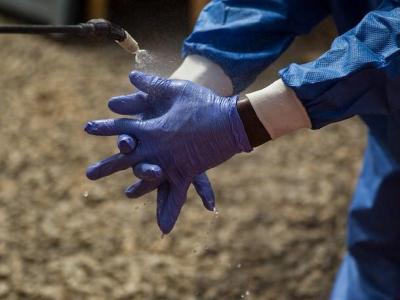An international group of experts is calling for the United Nations (UN) to establish an action plan to ensure sustainable global access to antimicrobials while also combating resistance.
In a commentary published Jul 16 in The Lancet, the group called for the UN to create a High-Level Coordinating Mechanism (HLCM) on Antimicrobial Resistance that would address the threat posed by drug-resistant bacteria and insufficient access to effective antimicrobials. The authors of the commentary liken the effort to the Joint United Nations Program on HIV/AIDS (UNAIDS), which was created in 1996 to address the AIDS crisis.
According to the commentary, antibiotic resistance is responsible for more than 700,000 deaths worldwide each year, including 214,000 neonatal sepsis deaths. And while insufficient access and delays in access to antibiotics currently causes more deaths than antibiotic resistance, an increasing number of antibiotic-resistance related deaths are being reported in many countries.
A 2014 report by the World Health Organization (WHO) found that drug resistance was occurring globally and affecting many different infectious agents. In particular, it found that high-level antibiotic resistance in the bacteria responsible for bloodstream infections (sepsis), diarrhea, pneumonia, urinary tract infections, and gonorrhea was becoming widespread.
At the same, the commentary notes, providing sustainable access to effective antimicrobials is an essential component for achieving many of the UN's Sustainable Development Goals. The balancing act is to ensure continued access while also discouraging inappropriate use.
The commentary comes in advance of a September meeting in which the UN General Assembly will discuss the issue of antimicrobial resistance. The authors argue that the meeting must "develop realistic goals, stimulate political will, mobilise resources, and agree on an accountability mechanism for global collective action on this issue."
Four-part plan
The experts recommend four core components for the HCLM on Antimicrobial Resistance:
- Raise public awareness of drug resistance and lack of access to antibiotics
- Monitor and evaluate global and national targets for antimicrobial access and appropriate use
- Mobilize financial resources that would fund global and national action plans
- Coordinate country-level, multi-sectoral strategies
The authors add that the HCLM should look to other initiatives that require global cooperation to solve problems, such as the Framework Convention on Tobacco Control and the Intergovernmental Panel on Climate Change.
Lead author Ramanan Laxminarayan, PhD, MPH, director of the Center for Disease Dynamics, Economic & Policy (CDDEP), also said the effort needs to involve agricultural and environmental agencies.
"Since antibiotics are used widely in livestock, humans, and in the environment, the problem of antibiotic resistance can be tackled only by involving all of these sectors," Laxminarayan said in a CDDEP news release.
In a study published late last year in The Lancet, Laxminarayan and colleagues argued that improved global access to antibiotics could avert the deaths of 445,000 children under the age of 5 years from pneumonia.
See also:
Jul 16 Lancet commentary
Jul 16 CDDEP news release
Nov 18, 2015, Lancet study on access to effective antimicrobials





















